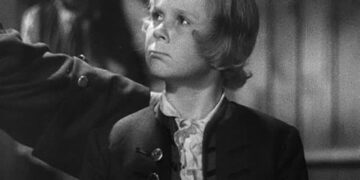Diving into the world of French cinema, we come across an array of masterpieces, one of which is Jean-Luc Godard’s Carmen (1983).
Godard, an influential figure in the French New Wave cinema of the 1960s, dared to craft an adaptation of Georges Bizet’s opera, Carmen, integrating his distinctive style and innovative storytelling.
Carmen (1983), also known as First Name: Carmen, redefines conventional cinematic norms, presenting a narrative that is as captivating as it is perplexing.
In Godard’s version, Carmen is not an opera singer but a member of a terrorist group, adding a modern twist to the classic tale.
This article delves into the intricacies of Godard’s Carmen (1983), providing a comprehensive book summary, comparative analysis, and insights into this cinematic masterpiece.
Brief Summary of Carmen (1983)
Carmen (1983) is a blend of love, passion, and crime. The movie revolves around Carmen X, played by Maruschka Detmers, a young woman who seduces a security guard, Joseph, portrayed by Jacques Bonnaffé.
Carmen convinces Joseph to assist in a bank robbery that her terrorist group has planned.
The robbery goes awry, leading to a series of events that draw Carmen and Joseph into a whirlpool of passion and danger.
The narrative diverges from the original opera, introducing elements of crime and modernity, while maintaining the essence of love and fatal attraction.
Comparative Analysis of Carmen (1983) and the Original Work
While staying true to the core of Bizet’s opera, Godard’s Carmen (1983) introduces a contemporary setting and a different plotline. The original opera showcases Carmen as a femme fatale who enchants a soldier, Don José, leading him down a path of downfall.
In contrast, Godard’s Carmen is a member of a terrorist group, using her charm to involve Joseph, a security guard, in a bank heist.
Despite these changes, the essence of fatal attraction and self-destruction remains constant in both versions, making the comparison an intriguing study.
Insight into the Unique Aspects of Carmen (1983)
Carmen (1983) is a testament to Godard’s innovative storytelling. The use of jump cuts, unconventional narrative structure, and the blending of fiction and reality are unique aspects of this film.
Godard’s signature style is evident in the movie’s nonlinear narrative, leaving viewers to piece together the story. He further blurs the line between fiction and reality by incorporating real-life events, such as the news of a real bank robbery during the movie’s timeline.
Carmen: A Parent’s Guide
Carmen (1983), with its themes of love, crime, and passion, is a film suited for mature audiences. It contains scenes of violence, implied sexual content, and crimes, warranting parental discretion for younger viewers.
Parents should also note that the movie requires a level of comprehension to understand the non-linear narrative and symbolic elements. Therefore, Carmen (1983) is recommended for older teenagers and adults.
When and Where Carmen (1983) Takes Place
Carmen (1983) is set in the vibrant city of Paris in the early 1980s. This modern setting contrasts with the original Carmen, which takes place in Seville, Spain, in the 1820s.
The shift in time and place adds a contemporary touch to the story while maintaining the essence of passion and self-destruction that permeates both versions.
Unveiling the Film Locations of Carmen (1983)
The film locations of Carmen (1983) add to its charm and authenticity. Godard shot the movie in several locations in Paris, including the iconic Seine River and the bustling streets of the city.
The use of real locations adds a sense of realism to the film, immersing viewers in the narrative and the vibrant life of 1980s Paris.
Who’s Who in Carmen (1983): Character Analysis
Carmen X, played by Maruschka Detmers, is a captivating figure, embodying passion, rebellion, and charm. She uses her allure to manipulate Joseph, a security guard played by Jacques Bonnaffé, showcasing the destructive power of attraction.
Joseph, captivated by Carmen, follows her into a world of crime, illustrating his descent from a law-abiding citizen to a criminal under Carmen’s influence.
Iconic Quotes from Carmen (1983)
Carmen (1983) is filled with memorable dialogues that encapsulate the essence of the film’s themes. One such quote from Carmen herself is: “When I love a man, he’s not a brother, a father, a son… He’s a man.”
This quote captures Carmen’s allure and her ability to enthrall men, leading them into her world of passion and danger.
Exploring the Soundtrack of Carmen (1983) by Franí§ois Musy
The soundtrack of Carmen (1983), composed by Franí§ois Musy, encapsulates the film’s mood.
Musy masterfully blends contemporary music with snippets from Bizet’s original opera, creating a unique soundscape that complements the narrative.
The use of music enhances the narrative’s tension, romance, and drama, immersing viewers in Carmen’s world.
Curiosities and Trivia about Carmen (1983)
Carmen (1983), with its unique narrative and innovative filmmaking, has several interesting facts associated with it.
For instance, Godard himself appears in the film as Uncle Jean, adding a touch of meta-cinema to the narrative.
Additionally, the film was awarded the Golden Lion at the Venice Film Festival, attesting to its critical acclaim.
Tips for Cosplay: Dressing Like Characters from Carmen (1983)
For those looking to replicate the looks of characters from Carmen (1983), focus on the 1980s fashion trends.
Carmen, with her bold and rebellious nature, often dons leather jackets and high-waisted jeans, embodying the era’s trend.
Joseph, on the other hand, is often seen in a security guard uniform, reflecting his profession and character.
A Brief Look at Georges Bizet: His Life and Works
Georges Bizet, the man behind the original Carmen, was a renowned French composer of the romantic era. Bizet’s works, including Carmen, have had a profound impact on opera and music, influencing generations of creators.
Despite his untimely death at 36, Bizet’s legacy continues to live on, with Carmen being one of the most performed operas worldwide.
Understanding the Ending of Carmen (1983): Analysis and Interpretation
The ending of Carmen (1983) is as captivating as it is perplexing. Carmen, after leading Joseph into a life of crime and chaos, leaves him, resulting in his emotional and mental breakdown.
The ending, filled with symbolism and ambiguity, leaves viewers to interpret its meaning, adding to the film’s allure.
The Potential of a Carmen (1983) Remake, Sequel, or Spin-off
Given the popularity and critical acclaim of Carmen (1983), there exists the potential for a remake, sequel, or spin-off.
However, any such project would need to retain the essence of Godard’s innovative storytelling and the narrative’s unique blend of passion, crime, and self-destruction.
Exploring Other Media by Jean-Luc Godard
Jean-Luc Godard, with his distinctive style and daring narratives, has a plethora of other works worth exploring.
His filmography includes masterpieces like Breathless (1960), Contempt (1963), and Alphaville (1965), each showcasing his innovative storytelling and bold narratives.
Similar Media to First Name: Carmen
For those intrigued by Carmen (1983), there are several similar films worth exploring.
Godard’s own filmography offers a plethora of choices, while films like Franí§ois Truffaut’s Jules and Jim (1962) and Jean-Pierre Melville’s Le Samouraí¯ (1967) also delve into themes of passion, rebellion, and self-destruction.
Diving into Other Works by Georges Bizet
Apart from Carmen, Georges Bizet has composed several other notable works.
His compositions, such as The Pearl Fishers and L’Arlésienne, showcase his prowess as a composer and his ability to create captivating narratives through music.
Discovering Media Similar to Carmen
For those interested in exploring media similar to Carmen, there are several films, books, and operas that delve into themes of passion, crime, and self-destruction.
These include films like Bonnie and Clyde (1967), books like Fyodor Dostoevsky’s Crime and Punishment, and operas like Giuseppe Verdi’s La Traviata.
Book Club Questions for Carmen (1983)
Discussing Carmen (1983) in a book club can lead to intriguing conversations.
Questions could revolve around the film’s unique narrative style, the shift from the original opera, and the characters’ motivations and actions.
Video Games Inspired by Carmen (1983)
While there aren’t any direct video games inspired by Carmen (1983), several games explore themes of passion, crime, and rebellion.
Games like Grand Theft Auto and Persona 5 delve into similar narratives, offering players a chance to immerse themselves in worlds akin to Carmen’s.
A Travel Guide to Visit First Name: Carmen Locations
For those interested in visiting the film locations of Carmen (1983), a trip to Paris is a must.
The city’s vibrant streets, the iconic Seine River, and other filming locations offer a chance to relive the film’s narrative and immerse oneself in the film’s charm.
Conclusion
Unveiling the intricacies of Carmen (1983) reveals a cinematic masterpiece that redefines conventional storytelling.
Jean-Luc Godard’s daring narrative, combined with the film’s unique blend of passion, crime, and self-destruction, makes Carmen (1983) a film worth exploring and discussing.














